Supreme Court blocks monumental Purdue Pharma opioid settlement

The Supreme Court has blocked a nationwide settlement that would have seen the families of OxyContin victims handed billions - after ruling the payout would have shielded members of the Sackler family who own drug maker Purdue Pharma.

After deliberating for more than six months, the justices in a 5-4 vote blocked an agreement hammered out with state and local governments and victims. The decision reversed a ruling that had upheld the plan to give Purdue's owners immunity in exchange for paying up to $6 billion to settle thousands of lawsuits accusing the company of unlawful misleading marketing of OxyContin, a powerful pain medication introduced in 1996.

The Sacklers would have also given up ownership of the company but retained billions more. The agreement provided that the company would emerge from bankruptcy as a different entity, with its profits used for treatment and prevention. Justice Neil Gorsuch, writing for the majority, said 'nothing in present law authorizes the Sackler discharge.'
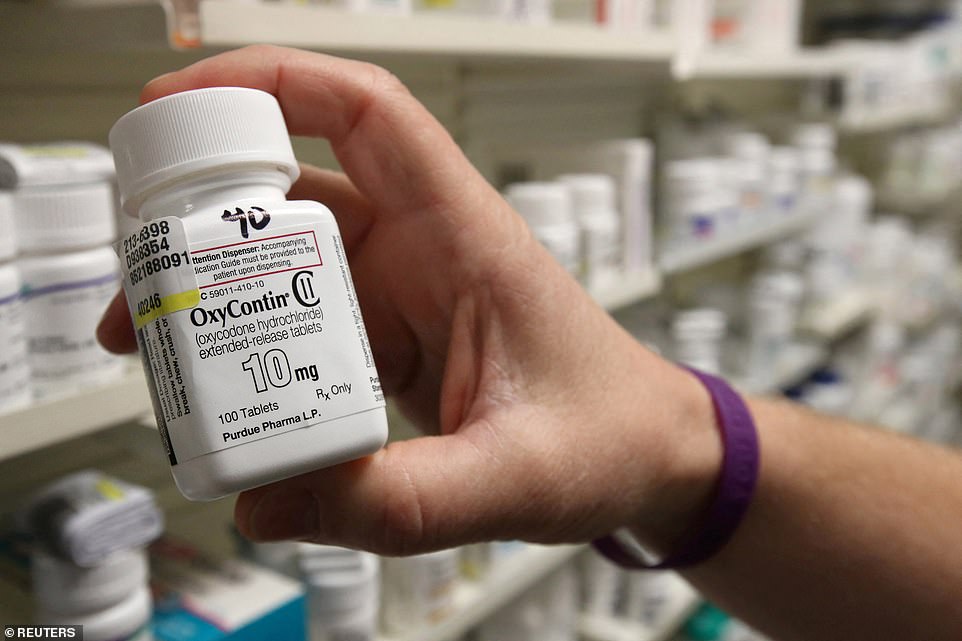
Justices Brett Kavanaugh, Ketanji Brown Jackson, Elena Kagan and Sonia Sotomayor dissented. 'Opioid victims and other future victims of mass torts will suffer greatly in the wake of today's unfortunate and destabilizing decision,' Kavanaugh wrote. Purdue filed for Chapter 11 bankruptcy in 2019 to address its debts, nearly all of which stemmed from thousands of lawsuits. The suits allege that OxyContin helped kickstart an opioid epidemic that has caused more than half a million U.S. overdose deaths over two decades.
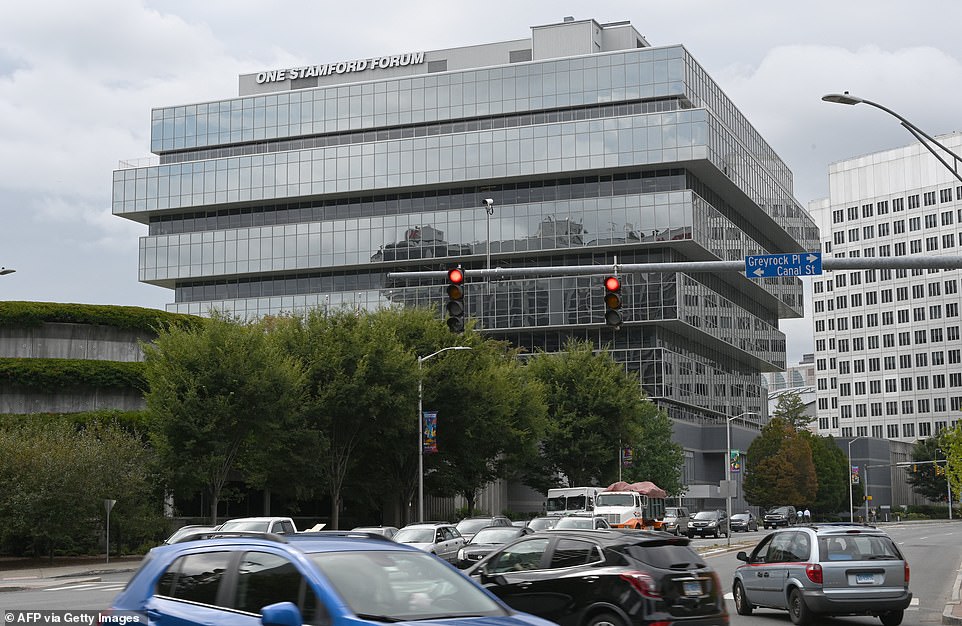
Edward Neiger, a lawyer representing more than 60,000 overdose victims, said: 'Today's Supreme Court ruling marks a major setback for the families who lost loved ones to overdose and for those still struggling with addiction. 'The Purdue plan was a victim-centered plan that would provide billions of dollars to the states to be used exclusively to abate the opioid crisis and $750 million for victims of the crisis, so that they could begin to rebuild their lives. 'As a result of the senseless three-year crusade by the government against the plan, thousands of people died of overdose, and today's decision will lead to more needless overdose deaths.'
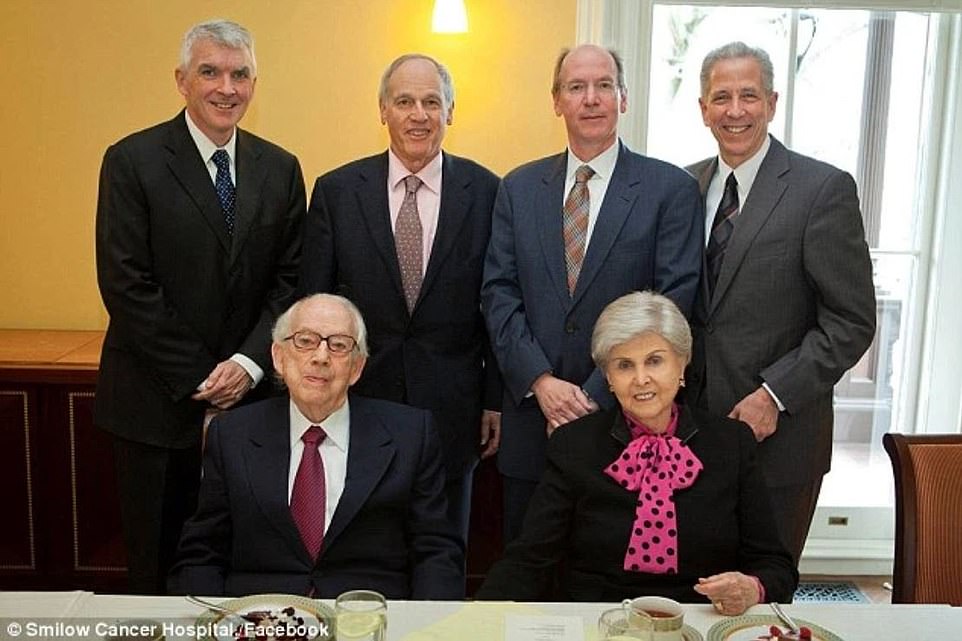
At issue in the case was whether bankruptcy law lets Purdue's restructuring include legal protections for the members of the Sackler family, who have not filed for personal bankruptcy. These so-called 'non-debtor releases' originally arose in the context of asbestos litigation, but their use has been expanded by companies looking to use such protections as a bargaining chip.

The Connecticut-based company estimates that its bankruptcy settlement, approved by a judge in 2021, would provide $10 billion in value to its creditors, including state and local governments, individual victims of addiction, hospitals and others who have sued the company. The court put the settlement on hold last summer in response to objections from the Biden administration. It's unclear what happens next. Ed Bisch's 18-year-old son Eddie, died from an overdose after taking OxyContin in Philadelphia in 2001.

The older Bisch, who lives in New Jersey, has been speaking out against Purdue and Sackler family members ever since and is part of a relatively small but vocal group of victims and family members who opposed the settlement. 'This is a step toward justice. It was outrageous what they were trying to get away with,' he said Thursday. 'They have made a mockery of the justice system and then they tried to make a mockery of the bankruptcy system.' He said he would have accepted the deal if he thought it would have made a dent in the opioid crisis. He's now calling on the Department of Justice to seek criminal charges against Sackler family members. OxyContin first hit the market in 1996, and Purdue Pharma's aggressive marketing of it is often cited as a catalyst of the nationwide opioid epidemic, with doctors persuaded to prescribe painkillers with less regard for addiction dangers.
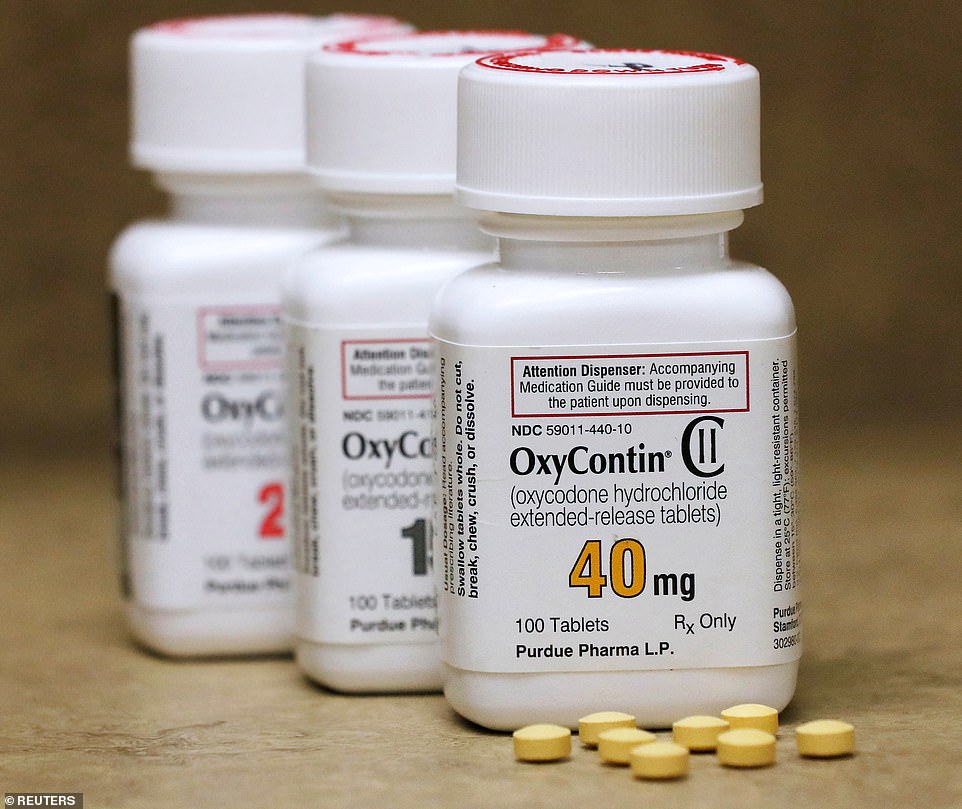
The drug and the company became synonymous with the crisis, even though the majority of pills being prescribed and used were generic drugs. Opioid-related overdose deaths have continued to climb, hitting 80,000 in recent years. Most of those are from fentanyl and other synthetic drugs. The Purdue Pharma settlement would have ranked among the largest reached by drug companies, wholesalers and pharmacies to resolve epidemic-related lawsuits filed by state, local and Native American tribal governments and others. Those settlements have totaled more than $50 billion.
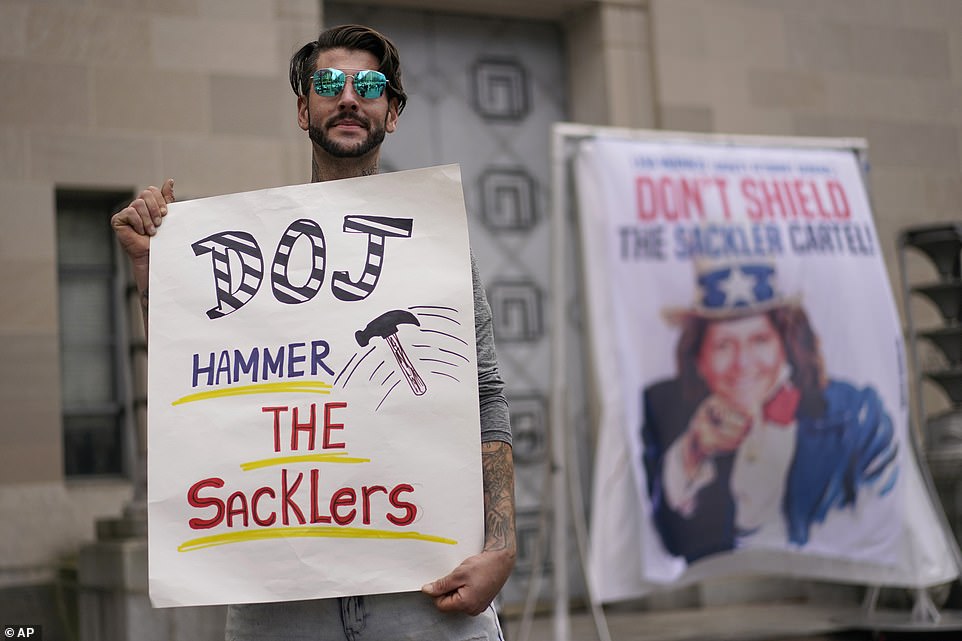
But the Purdue Pharma settlement would have been only the second so far to include direct payments to victims from a $750 million pool. Payouts would have ranged from about $3,500 to $48,000. Sackler family members no longer are on the company's board, and they have not received payouts from it since before Purdue Pharma entered bankruptcy. In the decade before that, though, they were paid more than $10 billion, about half of which family members said went to pay taxes.

Want more stories like this from the Daily Mail? Hit the follow button above for more of the news you need.

